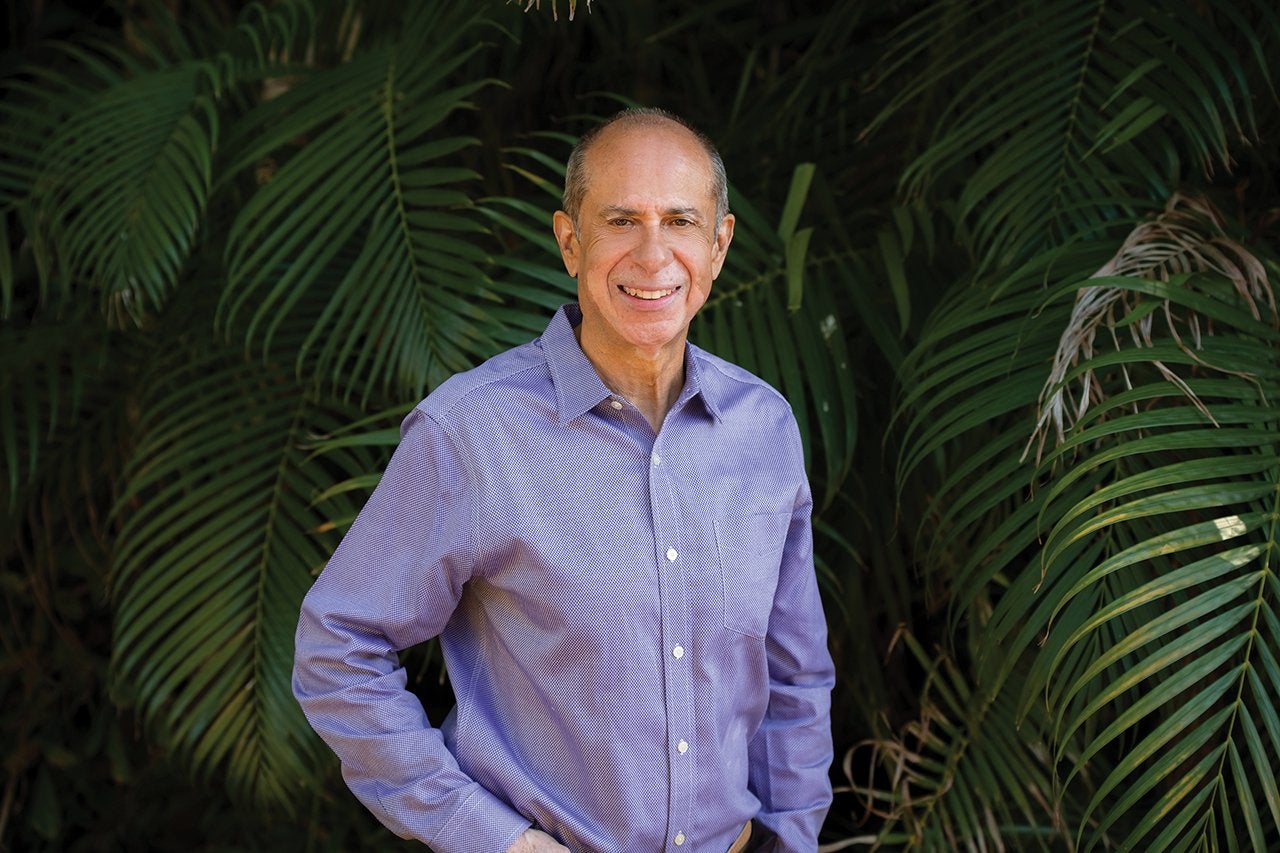“The greatest challenge that humanity is facing is the emotional well-being of ourselves,” says Rahul N. Mehra, M.D. ’83. “And I know this because I’m living it myself.”
Mehra has spent his entire career dedicated to improving the mental health of others, but after a series of tragic events over the past 14 months, he was the one who found himself needing to ask for help.
“I’m very public with this,” he says. “I’m on an antidepressant myself as a board-certified child, adolescent and adult psychiatrist.”
At the beginning of 2022, Mehra’s wife, Cathy, found him disoriented on the floor of their Florida home – he had suffered a major stroke. The chance of surviving without deficits was less than 5%. While in the hospital, Mehra had another major stroke but miraculously managed to fully recover.
“I walked straight out of Tampa General ICU, not even in a wheelchair,” he says. “God was not yet done with me.”
This attitude would also get him through an emergency laparotomy and the death of a close friend and business partner of over 20 years.
“My story is all about hope and resilience,” he says.
Born in India, Mehra immigrated with his family to Gaffney, South Carolina, as a young boy. While his father was a professor at Limestone College (now Limestone University), he came to the College, where he majored in biology.
At CofC, he found a mentor in biology professor Harry Freeman. The pair would go on to form Alpha Epsilon Delta, a pre-medical society, before Mehra graduated and headed to the Medical University of South Carolina. He later created the Kamla Kapur Mehra and Krishna Nandan Mehra Endowed Scholarship for a student from Gaffney High School to attend the College.
A practicing psychiatrist for the past 30 years, Mehra is now focused on providing tools to elevate and improve awareness of mental health issues through his Florida-based organization, the National Center for Performance Health. Mehra and his colleagues provide short informational videos on wellness that they have coined as “emotional vaccines.” The videos touch on subjects like depression and stress in adults or social-emotional learning and resiliency in children, as well as improve overall academic and athletic performance through mental health.
A large part of what Mehra, who was the 2016 recipient of the College’s Pre-Medical Society’s Outstanding Service Award in Medicine, wants to do is reduce the stigma around talking about mental health issues. One of the ways to attack the negative insinuations is to talk about how clarity of the mind can improve physical performance. This approach to increased athleticism through therapy also led him to work with professional sports teams in Major League Baseball.
Mehra has spent the majority of his career working with children with a focus on those in foster care. He realized early on that many mental health issues stem from childhood trauma, so why not start by equipping young people and their parents with tools to overcome obstacles?
“At my core, I’m a child psychiatrist,” says Mehra. “I love children and trying to help their well-being, but while I may not be doing one-to-one patient care work, I’m taking things on a more global level to help many more people.”




